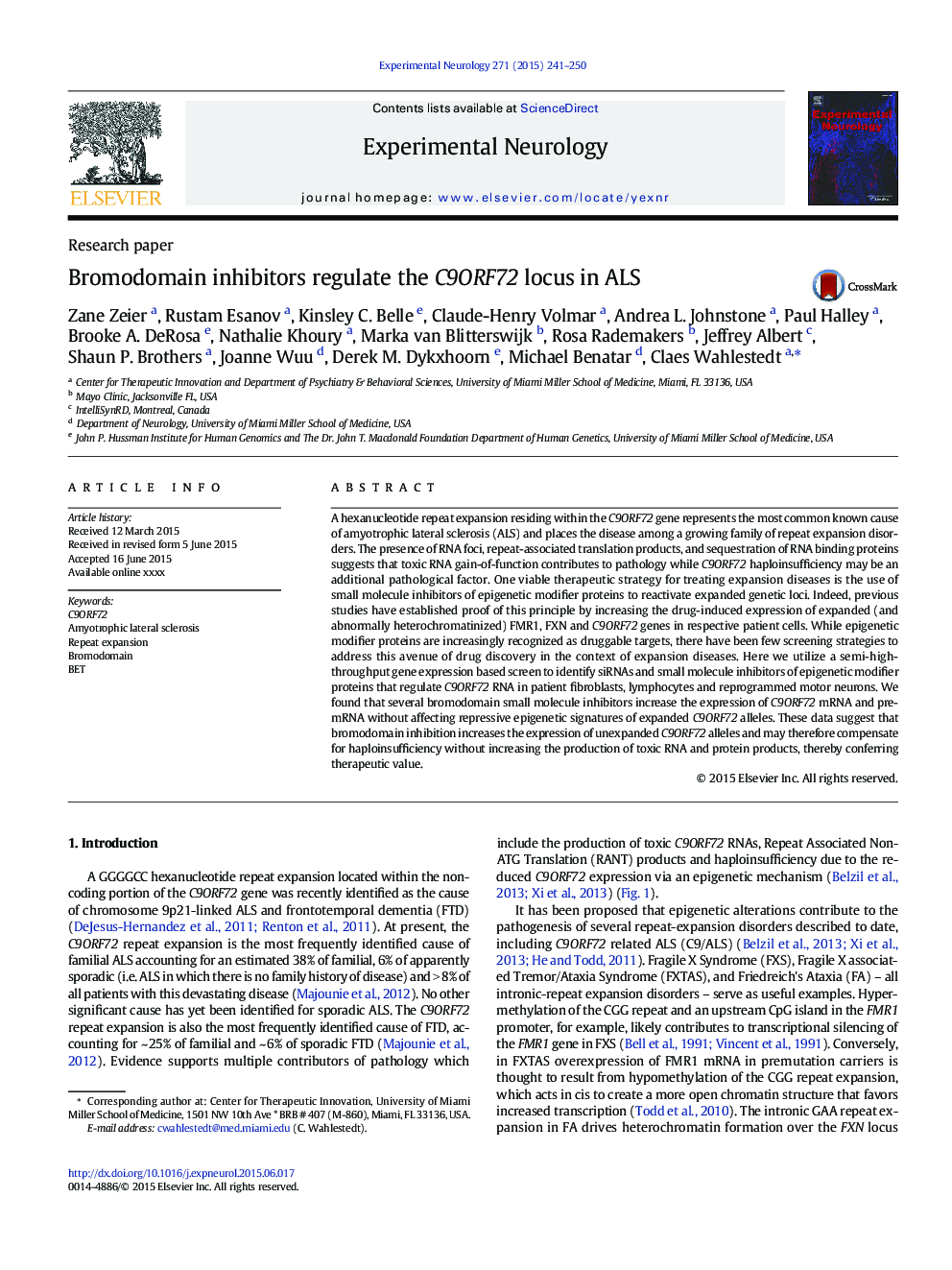| Article ID | Journal | Published Year | Pages | File Type |
|---|---|---|---|---|
| 6017249 | Experimental Neurology | 2015 | 10 Pages |
Abstract
A hexanucleotide repeat expansion residing within the C9ORF72 gene represents the most common known cause of amyotrophic lateral sclerosis (ALS) and places the disease among a growing family of repeat expansion disorders. The presence of RNA foci, repeat-associated translation products, and sequestration of RNA binding proteins suggests that toxic RNA gain-of-function contributes to pathology while C9ORF72 haploinsufficiency may be an additional pathological factor. One viable therapeutic strategy for treating expansion diseases is the use of small molecule inhibitors of epigenetic modifier proteins to reactivate expanded genetic loci. Indeed, previous studies have established proof of this principle by increasing the drug-induced expression of expanded (and abnormally heterochromatinized) FMR1, FXN and C9ORF72 genes in respective patient cells. While epigenetic modifier proteins are increasingly recognized as druggable targets, there have been few screening strategies to address this avenue of drug discovery in the context of expansion diseases. Here we utilize a semi-high-throughput gene expression based screen to identify siRNAs and small molecule inhibitors of epigenetic modifier proteins that regulate C9ORF72 RNA in patient fibroblasts, lymphocytes and reprogrammed motor neurons. We found that several bromodomain small molecule inhibitors increase the expression of C9ORF72 mRNA and pre-mRNA without affecting repressive epigenetic signatures of expanded C9ORF72 alleles. These data suggest that bromodomain inhibition increases the expression of unexpanded C9ORF72 alleles and may therefore compensate for haploinsufficiency without increasing the production of toxic RNA and protein products, thereby conferring therapeutic value.
Related Topics
Life Sciences
Neuroscience
Neurology
Authors
Zane Zeier, Rustam Esanov, Kinsley C. Belle, Claude-Henry Volmar, Andrea L. Johnstone, Paul Halley, Brooke A. DeRosa, Nathalie Khoury, Marka van Blitterswijk, Rosa Rademakers, Jeffrey Albert, Shaun P. Brothers, Joanne Wuu, Derek M. Dykxhoorn,
